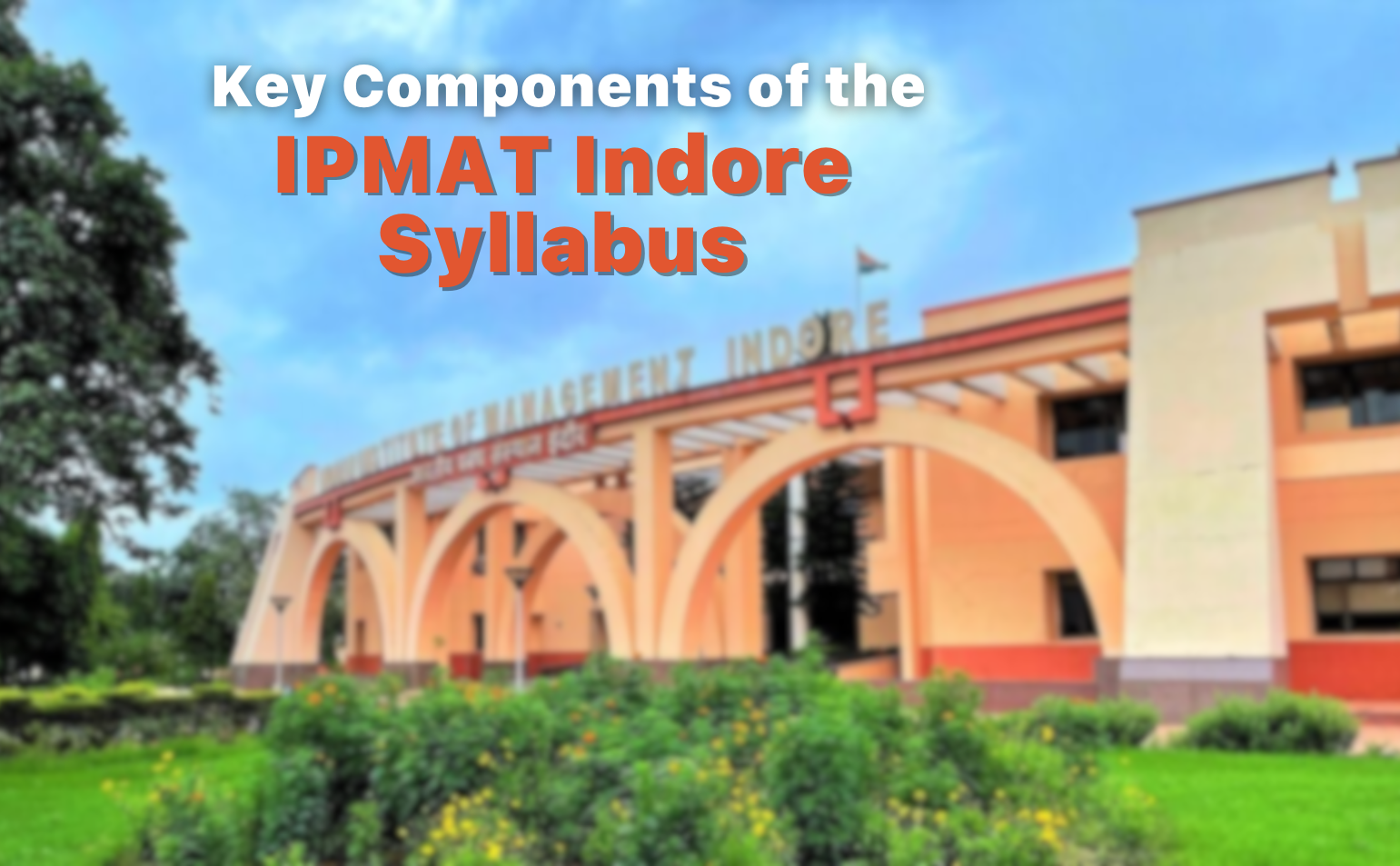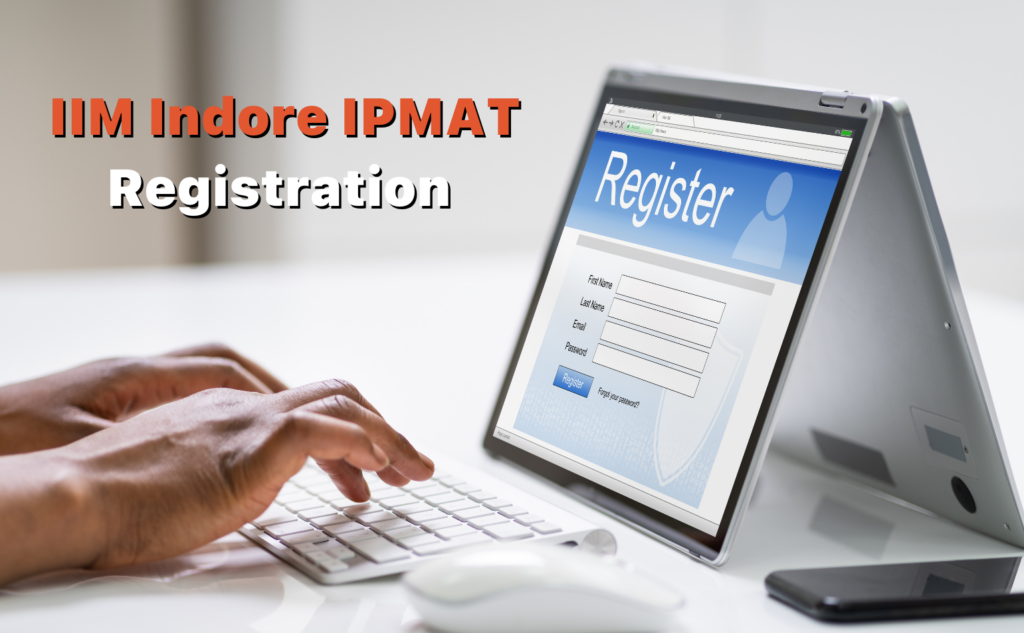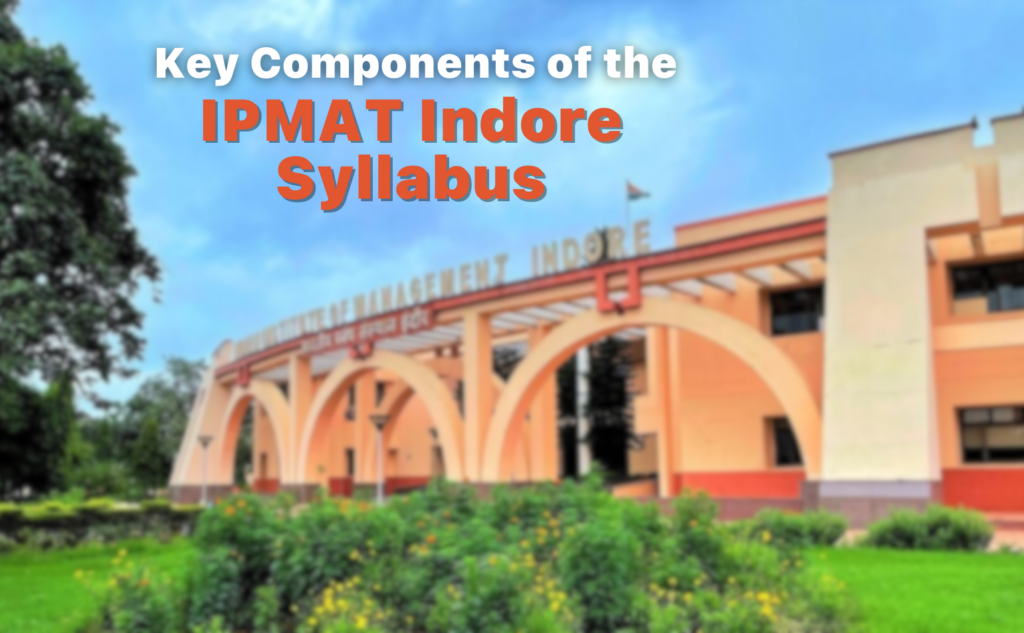The Integrated Program in Management Aptitude Test (IPMAT) is a crucial examination for students aspiring to secure seats in the five-year integrated management program at the Indian Institute of Management (IIM) Rohtak. Understanding the syllabus becomes paramount for effective preparation as the examination date approaches.
In this blog, we will explore the key topics covered in the IPMAT Rohtak syllabus for 2025, ensuring that candidates are well-informed and ready to take the test.
“Tarkashastra made my MBA CET registration seamless with their guidance and resources at every step.”
Join our classes today.
Add Your Heading Text Here
Overview of IPMAT Rohtak
IPMAT Rohtak assesses a candidate’s aptitude in various areas crucial for management studies. The exam typically covers three main sections: Quantitative Ability (QA), Verbal Ability (VA), and Logical Reasoning (LR). Each section tests different skills and knowledge areas, making a thorough understanding of the syllabus essential for success.
What is the IPMAT Rohtak 2025 syllabus?
1. Quantitative Ability (QA)
The Quantitative Ability portion evaluates candidates’ aptitude for mathematics and problem-solving. The list of significant subjects discussed in the quantitative portion is shown in the table below:
Topic | Description |
Number Systems | Understanding integers, rational numbers, and real numbers, including LCM, HCF, and divisibility rules. |
Algebra | Topics include polynomials, quadratic equations, inequalities, sequences, series, and functions. |
Arithmetic | Covers percentages, profit and loss, ratios and proportions, averages, and time and work problems. |
Geometry | Basic concepts include lines, angles, triangles, circles, polygons, area, and volume calculations. |
Trigonometry | Fundamental concepts of trigonometric ratios, identities, and applications related to triangles. |
Statistics | Measures of central tendency (mean, median, mode), measures of dispersion (range, variance, standard deviation), and basic probability concepts. |
2. Verbal Ability (VA)
The Verbal Ability portion assesses the applicants’ verbal abilities, understanding, and vocabulary. The following table summarizes the important subjects covered in the IPMAT Rohtak curriculum.
Topic | Description |
Reading Comprehension | Analyze passages and answer questions based on understanding; practice with various text types. |
Grammar | Rules of English grammar, including parts of speech, sentence structure, tenses, and subject-verb agreement. |
Vocabulary | Focus on learning synonyms, antonyms, and word meanings to enhance verbal skills. |
Sentence Completion | Fill in the blanks in sentences with appropriate words or phrases for grammatical correctness. |
Para Jumbles | Rearranging jumbled sentences to form coherent paragraphs. |
Critical Reasoning | Evaluating arguments, identifying assumptions, and drawing conclusions based on provided information. |
3. Logical Reasoning
The component tests applicants’ analytical and logical thinking skills. To do well in this area, applicants should concentrate on the following topics:
Topic | Sub-Topic |
General Logical Reasoning | Logical Sequence Series, Coding, Arrangements, Blood Relations, Input & Output, Binary Logic |
Visual Puzzles | Cubes & Dices, Venn Diagrams |
Non-Verbal Reasoning | Critical Reasoning, Statements, Conclusions, Syllogisms, True or False |
Standard Logical Reasoning | Games & Tournaments, Cubes & Visual Puzzles, Word Problems, Sequencing, Grid Puzzles, Linear & Circular Seating Arrangements |
What are the IPMAT Rohtak Syllabus 2025 Recommended Books by Toppers?
Book Title | Author/Publisher |
Word Power Made Easy | Norman Lewis |
Class XI and XII Mathematics | R.D. Sharma |
Quantitative Aptitude for Competitive Exams | R.S. Aggarwal |
Comprehension Guide for IPM (IIM Indore) Entrance Exam with five online tests | Disha Experts |
High School English Grammar and Composition Key | Wren and Martin |
Word Power Made Easy | Norman Lewis |
Objective General English | SP Bakshi |
Fast Track Objective Arithmetic | Fast Track Objective Arithmetic |
How Can the Rohtak IPMAT Syllabus Be Covered?
Candidates should develop and adhere to a systematic and strategic preparation strategy to successfully cover the IPMAT Rohtak curriculum. The following advice will help you thoroughly cover the IPMAT Rohtak topics in 2025:
- Candidates should initially familiarize themselves with the IPMAT Rohtak test pattern and curriculum. This method is essential for ranking subjects according to their importance and difficulty level.
- Give each component a certain number of hours to create a well-rounded study schedule. Establish weekly and daily objectives to guarantee steady improvement.
- Concentrate on comprehending the fundamental ideas in mathematics. Practice a range of simple questions before progressively raising the difficulty level.
- Candidates must review the subject and search for solved instances if they have trouble answering a question. This will help them recognize their errors. Additionally, this exercise enhances understanding of difficult subjects.
- Candidates should read books and articles every day to cultivate good reading habits. This method might improve their reading comprehension.
- Candidates must often review to reinforce the concepts they have mastered. They must also use brief notes or flashcards for fast reviews, particularly for vocabulary and numeric calculations.
- Also, refer to the LinkedIn Article, where AT sir explains in his article that aspirants can follow the Paper Clip Strategy, a visual system to track their progress.
What are the Key Takeaways:
- Comprehensive IPMAT Syllabus: The IPMAT covers basic to intermediate arithmetic, various English topics, and quantitative ability (MCQ and short answer).
- Detailed subjects: To provide comprehensive preparation, the IPMAT curriculum divides the main subjects into smaller ones, such as algebra, geometry, arithmetic, vocabulary, grammar, and reading comprehension.
- Exam Pattern: Important for strategic preparation, the IPMAT Indore pattern has a set amount of questions, marks, and time allotments for each section.
- Examine Previous Papers: Solving papers from prior years helps one understand the kinds of questions and their degrees of difficulty, which is crucial for determining key subjects and honing tactics.
- Advice for Preparation: Select topics, utilize dependable study resources, take practice exams, pick up new words daily, and hone your arithmetic and reasoning skills.
Exploring Tarkashastra: A Comprehensive Insight
Tarkashastra, as presented on its official website, is an innovative platform that merges ancient wisdom with modern applications. It focuses on providing educational resources and training programs that enhance critical thinking, problem-solving skills, and decision-making capabilities.
What are the Benefits of Engaging with Tarkashastra?
- Enhanced Critical Thinking: Tarkashastra empowers individuals to approach problems from multiple perspectives by focusing on logic and reasoning.
- Skill Development: The training programs are designed to equip participants with essential skills that can be applied in various fields, from academics to professional settings.
- Cultural Relevance: By integrating elements of Indian heritage and philosophy, Tarkashastra provides a unique learning experience that resonates with diverse audiences.
Conclusion
Understanding the IPMAT Rohtak syllabus for 2025 is crucial for aspirants aiming to secure a spot in the prestigious IIM Rohtak. Candidates can enhance their preparation and boost their confidence by focusing on the key topics across Quantitative Ability, Verbal Ability, and Data Interpretation. A strategic approach to studying and consistent practice will pave the way for success in the examination. As the exam date approaches, stay focused, manage your time wisely, and approach your preparation positively. Good luck!
FAQs
-
1. What topics are covered in the quantitative ability section of IPMAT Rohtak 2025?
The quantitative ability section of IPMAT Rohtak 2025 covers essential topics such as Number Systems, Algebra, Arithmetic, Geometry, Trigonometry, and Statistics. These areas assess candidates' mathematical skills and problem-solving capabilities, requiring a solid foundation in various mathematical concepts.
-
2. What are the main focus areas in the verbal ability section of the IPMAT Rohtak 2025 syllabus?
The verbal ability section emphasizes Reading Comprehension, Grammar, Vocabulary, Sentence Completion, Para Jumbles, and Critical Reasoning. Candidates are expected to analyze passages, understand grammatical structures, and engage in logical reasoning, making proficiency in English crucial for success.
-
3. Are there any significant updates to the IPMAT Rohtak 2025 syllabus?
While the core syllabus remains consistent, candidates should regularly check the official IPMAT Rohtak website for updates or changes. Staying informed ensures students are aware of new topics or modifications that could impact their preparation.
-
4. How can students effectively study the key topics for IPMAT Rohtak 2025?
To effectively study for IPMAT Rohtak 2025, students should create a structured study plan, practice regularly with mock tests, and focus on their weak areas. Engaging with resources like Tarkashastra can also enhance critical thinking and problem-solving skills, which are vital for the exam.
-
5. What role does general knowledge play in the IPMAT Rohtak 2025 exam?
General knowledge supports the IPMAT Rohtak exam, particularly in enhancing a candidate's analytical skills and contextual understanding. While the exam primarily focuses on quantitative and verbal abilities, a well-rounded knowledge base can aid in critical reasoning and comprehension tasks. Tarkashastra can be a valuable resource, offering courses that enhance logical reasoning and analytical thinking, essential for effectively tackling the IPMAT.






